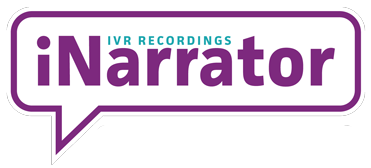Simply put an IVR Message is the voice prompts you’ll hear when contacting a call centre.
An IVR Message will welcome you, tell you about the companies privacy policy and then usually give you a list of department options to choose from.
IVR Messages can be recorded in a number of ways:
By a company employee - a cheap option but due to poor sound quality the customer expereince can be negatively impacted.
By a professional voiceover artist - this presents the most authentic and engaging message, providing the best customer experience and showing your callers you care
AI Voice prompts - are quick and easy to implement but with a limited number of voice options and a lack of empathy this too can impact your customer experience.
Staying on top of call volumes can feel like an uphill battle for many organisations. Managing expectations, routing callers to the right place, and saving everyone time and hassle when they get there; without an Interactive Voice Response (IVR) system, this would be near impossible.
Over the years, IVR menus have evolved from embryonic ‘phone trees’ to become a sophisticated solution for call centres and large organisations. IVR messaging allows you to interact with callers, exchanging information to get them to the right place.
How does IVR Voice Messaging work?
Most companies have some form of IVR, ranging from a simple response menu to intelligent automated systems. Whether you’ve got something in place or not, it’s worth investing in IVR Voice Messages that deliver a smooth and efficient customer journey.
By working with an IVR consultant, like us, you can map out the ‘branches’ of your IVR tree, ensure that the scripts have the right tone of voice, and that your IVR recordings are in line with the rest of your brand.
Whether you’re starting from scratch or you want to step up the capabilities of your existing system, we can help. Our service can be tailored to your specific needs and deadlines, with a dedicated manager to oversee the project.
Audio Examples
Before working with IVR Recordings this is how Wandle sounded…
After working with IVR Recordings this is how good Wandle sounds…
Listen to our voiceover library here.
Curious to see what IVR messaging could do for your business?
To discuss your project, call our friendly team on 0161 850 3033 or email your script to
hello@ivr-recordings.co.uk for a free quote & audio demo.






